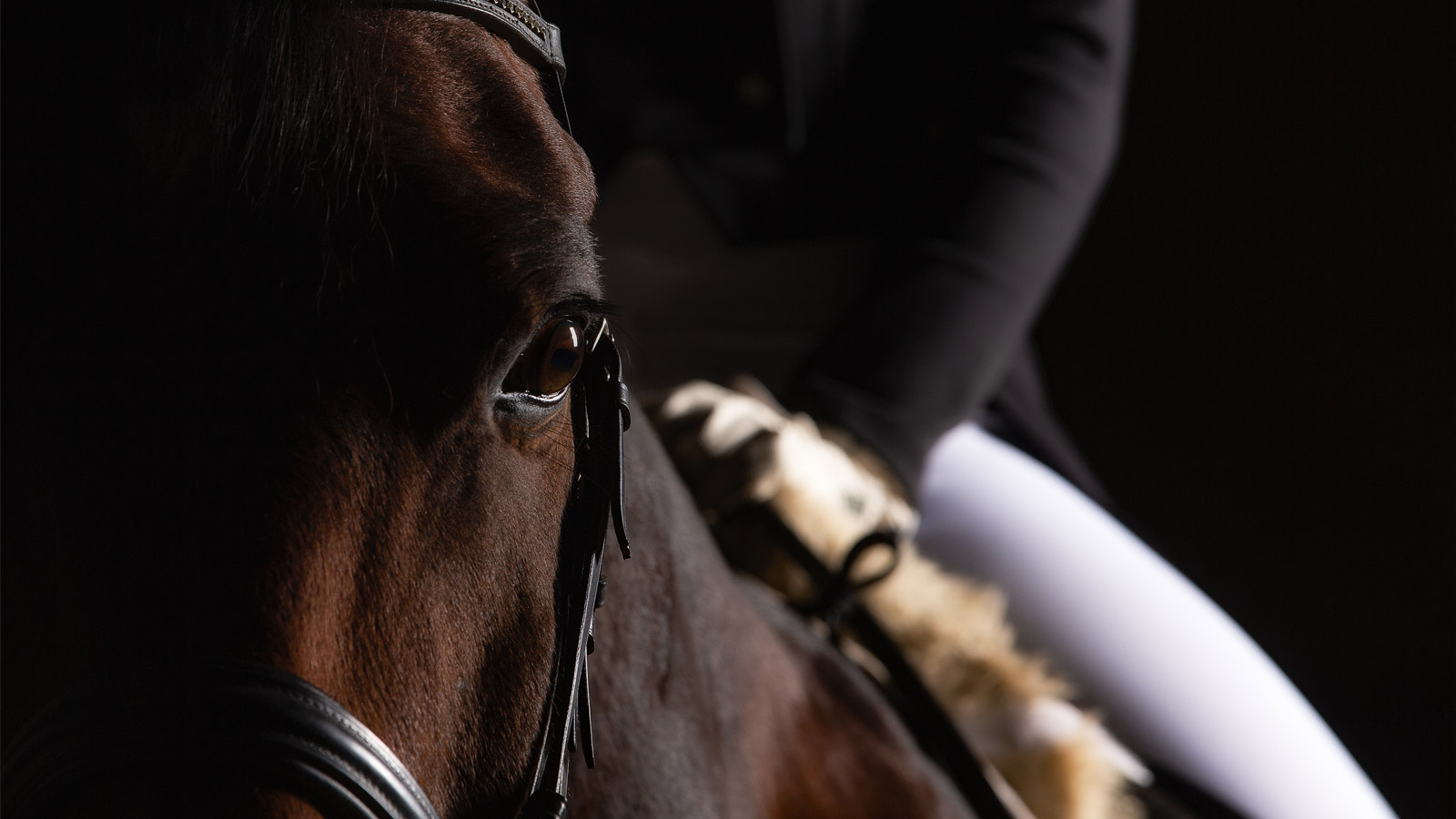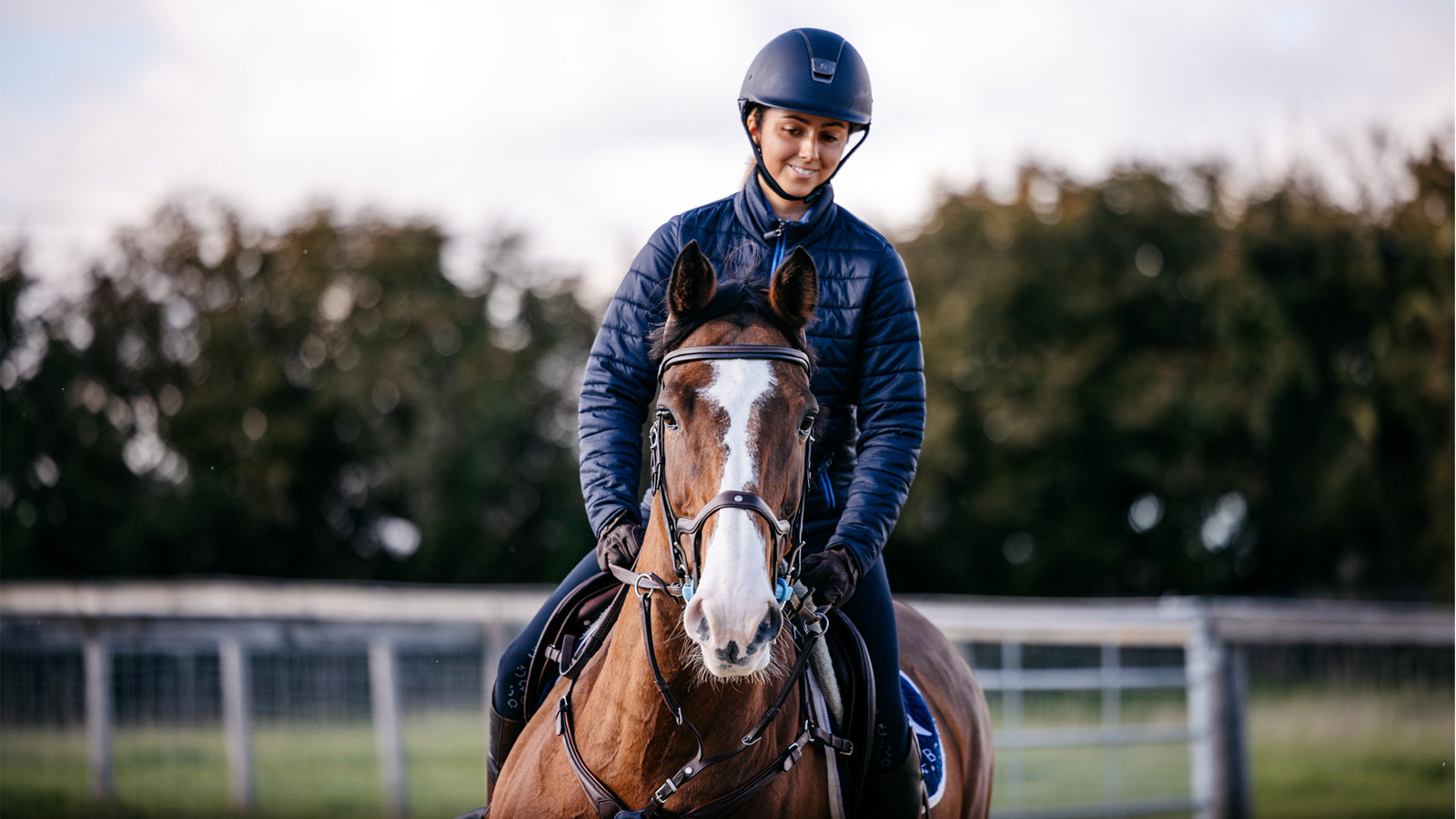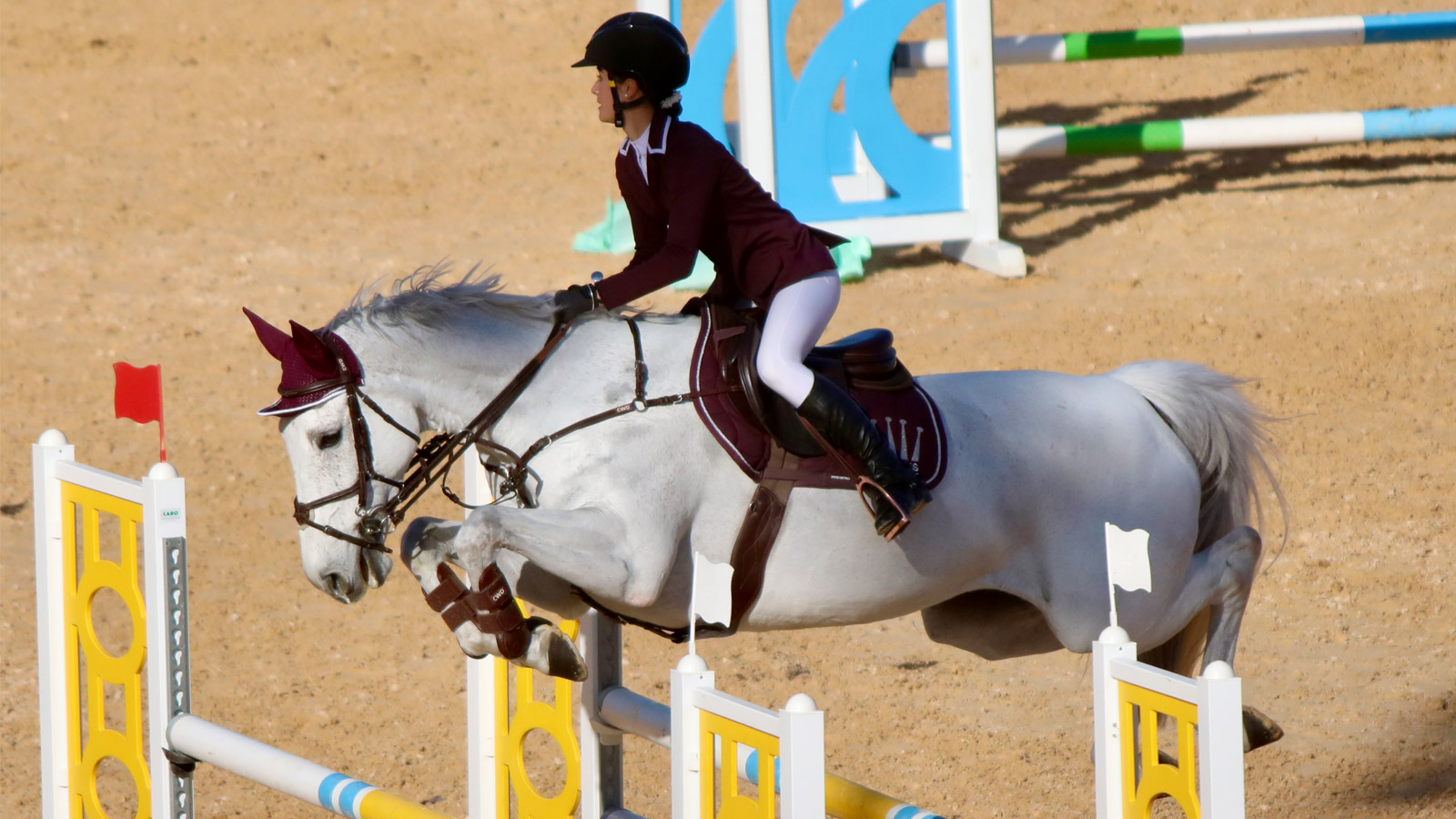There is a lot of discussion about bullying at school, in the workplace, online and in sport. Sadly, our sport is not immune to bullying, but it is never acceptable and is being addressed.

Some coaching styles that were once accepted would now likely be considered bullying; we now know that positive feedback is more effective to motivate people (and horses) and to change behaviour.
The world is a changing place. Some behaviour that a generation ago was seen as normal is now seen as coercive and an abuse of power, that is, bullying. Coaches, for example, in the past may have believed that yelling, or threatening or humiliating an athlete would motivate them to work harder, and help the athlete perform better.
In the past it was seen as okay and sometimes necessary to use violence in parenting. There was the saying “spare the rod and spoil the child”. But now we know that punishment is a very ineffective way to change behaviour. We now understand that reward will change behaviour more effectively. This represents significant cultural change.
Factors that have been considered to be a risk for bullying by coaches include having poor anger management skills and having a belief that verbal or physical abuse is an effective coaching technique. Some athletes who have been victims of bullying even support their former coaches, believing that the coach had their best interest at heart, and that the bulling was “tough love”. AFL football is grappling with this at present.
Usually, the perpetrator has power over the victim by virtue of status, or age or social position. Research has shown, not surprisingly, that coaches and parents are the most likely perpetrators in sport. I have certainly witnessed this at horse shows where a parent bullies their child, or a coach bullies their rider, or even high-profile riders bullying officials, most of whom are volunteers. I have witnessed an Olympian screaming at a swabbing steward just doing their job. Competitors threaten show organisers with legal action because they get don’t get their own way. This is bullying.
There are several examples even in recent months in varied disciplines in Australia involving coaches bullying riders, a state selector, and para dressage judges all bullying riders that have led to action in appropriate tribunals including the Supreme Court. Overseas there are some very high-profile cases. George Morris was a silver medallist at the Rome Olympics and the highly revered and very successful Chef d’Equipe of the USA showjumping team from 2005-13. He received a life ban in 2019 from the USA federation because of serious allegations of sexual abuse.
His coaching style would now be seen as very bullying. The content of his coaching was very effective, but the way it was delivered included denigrating comments, yelling and other behaviour that was tolerated in the past but no longer is seen as effective. I was lucky enough to do clinics with him in the late 1980s. However, one of my friends was less fortunate: “Take off your hat. Of course, another blonde!” was a retort she suffered after she miscounted the number of strides in a related line. This is bullying.
These days, bullying is defined by the Australian Sports Commission as deliberately hurting someone either physically, verbally, psychologically or socially. In our sport, verbal bullying is most common and includes making threats, intimidating someone, using belittling language, name calling, discounting the person’s achievements, yelling at someone or making unreasonable demands of performances. Cyber bullying is an increasing problem as the keyboard warriors have the benefit of relative anonymity and often very little accountability.
We know that it is possible to give feedback in a constructive way, without insulting, humiliating or denigrating someone. In fact, we know that positive feedback is more effective to motivate people (and horses) and to change behaviour.

Cyber bullying is an increasing problem as the keyboard warriors have the benefit of relative anonymity and often very little accountability.
WHAT YOU CAN DO
What can you do if you are bullied or if you witness bullying in our sport? Sometimes an isolated and not too severe incident of bullying may be handled by completely ignoring it, so the bully does not get a reaction which may encourage further bad behaviour, or laughing at the bully. I do suggest that, if it is safe to do so, try to be assertive and call it out as quickly as possible. Take a strong posture, use direct eye contact and a firm voice. Simply standing up, saying to a coach (or anyone in the sport who is bullying) for example “please don’t shout” (or “don’t call me names or run me or my horse down”, or whatever behaviour you recognise is bullying). That is bullying and it is not okay.
Sometimes that is enough to stop it. Sometimes the person bullying may not realise that they are bullying. They may be frustrated and angry and have trouble regulating their emotions. They may need to be reminded to take charge of their feelings and be responsible for themselves. Bullies usually target those who are weaker than them, so being assertive and not allowing it to go unnoticed can stop it quickly. If someone is being pretty badly behaved, I love the advice to just say something along the lines of, “Oh, can you just wait a minute while I get my phone” then pull out your phone and video what is happening. This can stop the behaviour very fast as most people don’t want their bad behaviour recorded. Best to stay out of arm’s reach, and recognise when this may be too provocative and risky, however. Safety, of course, is always the most important thing.
If the person who is bullying is angry, it can be safer to wait until they have calmed down and then talk to them calmly about it. There are benefits in having another person at such a discussion. Of course, the victim will not always be able to confront the bully, but a parent or friend may be able to help you. Keep a record of any discussions in case a higher authority has to be brought in.
Onlookers can also help. Don’t be alone with the bully if at all possible. If you witness bullying, think about whether you can support the victim by asking if they need help, or let the bully know that you have seen what happened and it’s not okay. Sometimes something simple like, “Mate, fair go, that’s a bit tough. She is trying hard”, can diffuse a situation. As I write this, I can recall several examples where I have witnessed a parent behaving badly and bullying in public and we other parents have just looked at each other awkwardly. I feel bad that I didn’t do something. Of course, someone prepared to behave badly in public is possibly behaving worse in private and the victim really might need support.
If the moment has passed or if you do not feel safe, you should inform someone in your sport who has control. This may be your state Equestrian Australia office, or a coaching committee or officials committee. The Australian Sports Commission has a factsheet on bullying with a number of recommendations.

Part of the learning in sport is about how to manage our feelings, how to have integrity in our dealings with our horses and the other people in our sport.
NATIONAL INTEGRITY FRAMEWORK
Sport Integrity Australia was set up in July 2020 to provide a National Integrity Framework that outlines what is acceptable behaviour in sport. The framework includes policies on safeguarding children, wagering, improper use of drugs and medicine, member protection and complaints, disputes and discipline. Equestrian Australia, Pony Club Australia, Riding for the Disabled, National Campdraft Council, and the Australian Polo Federation have all adopted the National Integrity Framework. This means that a complaint about unacceptable behaviour can be investigated, and any sanctions determined in one process where there is no conflict of interest. The process is very easy to start. You can find out more here or phone 1300 027 232.
If you are involved in a branch of the sport that is not signed up for the National Sports Integrity Framework, it can still receive a complaint and advise you, but any disciplinary matter will need to go through your sport’s complaint handling process.
The National Sports Tribunal is an independent body provided by the Commonwealth Government which provides independent disputes resolution that can be accessed by athletes and others involved in sport and sporting organisations. Serious breaches of conduct may end up here. Sanctions may include bans or exclusions from the sport.
We can all contribute to a safer environment in our sport by treating each other kindly and with consideration and politeness. Emotions can run high in sport. We are passionate about our sports and we invest a lot of ourselves, our time, our energy. Part of the learning in sport is about how to manage our feelings, how to have integrity in our dealings with our horses and the other people in our sport. Most of us can identify a time we have behaved badly. We need to own these times, apologise when necessary and try to manage better.
We can practise giving positive feedback. Where negative feedback is required, practise the “sh*t sandwich” strategy. Find something good to say (I can see you are trying really hard) then the difficult bit (but your heels are still up when you use your leg); add a positive suggestion (could you try pointing your toes up) and another positive comment (it might take a while, but I am confident that you can do this). We can all contribute to a culture of inclusion and support. Let’s all work together to stamp out bullying in equestrian sports. EQ
Further resource: www.playbytherules.net.au
YOU MIGHT ALSO LIKE TO READ BY KERRY MACK:
Avoid the Mud (Play Indoors) – Equestrian Life, October 2022
Why We Love Our Sport – Equestrian Life, September 2022
Getting on the Bit – Equestrian Life, July 2022
Positive Training Really Clicks with Horses – Equestrian Life, June 2022
Learn From Your Mistakes – Equestrian Life, March 2022 issue
Young Horse Classes: A Fun Launching Pad – Equestrian Life, February 2022 issue
Making Sense of all the Bits & Pieces – Equestrian Life, January 2022 issue
The Secret to ‘Soft Hands‘ – Equestrian Life, December 2021 issue
Ask Less, Reward More – Equestrian Life, October 2021 issue
So You Want To Go To The Games? – Equestrian Life, September 2021 issue
The Ins & Outs Of Bitless Bridles – Equestrian Life, July 2021 issue
Taking The Plunge With The Lunge – Equestrian Life, June 2021 issue
Dressage for Showjumpers – Equestrian Life, May 2021 issue
23 Shoulder-In Exercises to Improve Your Horse – Equestrian Life, April 2021 issue
Understanding Your Horse’s Inner Thoughts – Equestrian Life, March 2021 issue
Make the Most of Your Seniority – Equestrian Life, February 2021 issue
Building Better Relationships – Equestrian Life, January 2021 issue
Whipping Up Controversy – Equestrian Life, December 2020 issue
The Importance of a Trusting Relationship – Equestrian Life, November 2020 issue
Welcome to Kindergarten for Foals – Equestrian Life, October 2020 issue
The Carrot or the Liquorice? Positive Reinforcement – Equestrian Life, September 2020 issue
Submission or Stress? Something to Chew On – Equestrian Life, August 2020 issue
A Relaxed Horse is a Happy Horse – Equestrian Life, July 2020 issue
The Literate Horse Rider – Equestrian Life, June 2020 issue
Why Horses Love Ingrid Klimke – Equestrian Life, May 2020 issue




